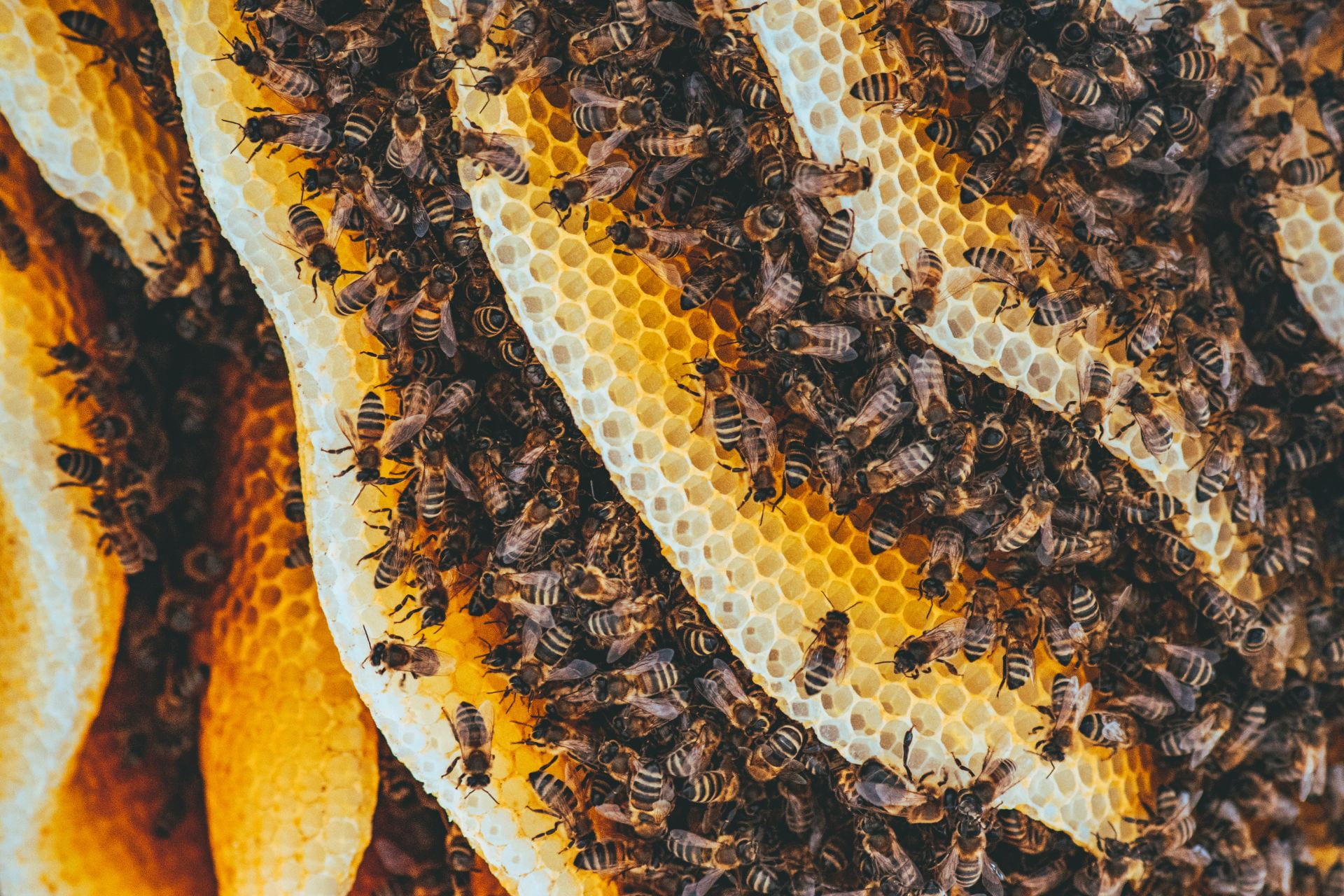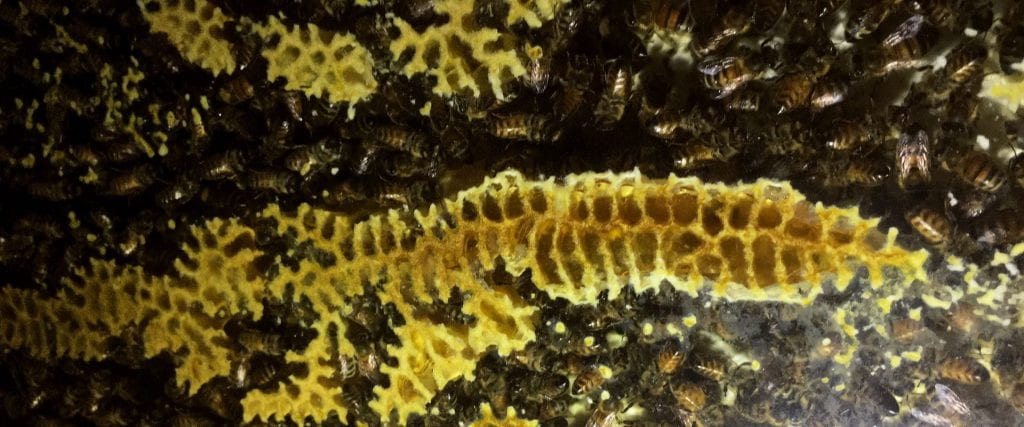Hi, I'm Beth and I'm a post-graduate student studying Marketing! I studied a BSc Events Management here in Lincoln so I have a particular interest in the events going on around the city. In my spare time, I love to…

Our friendly campus honeybees
January 13, 2020,
read.
This article is more than 3 years old
A few weeks ago, I got the chance to visit the honeybee observation hive that we have located on campus.
Most people are unaware that our campus is home to these bees and while I shared my experience on the Student Life social media, I learnt an extensive amount that I was unable to share all of.
The honeybees were mainly brought to live on campus for research purposes. Although, they will also give students many other opportunities – from a variety of projects to education and awareness on their importance to our eco-system. During the visit, I spoke to Dr Elisa Frasnelli, a Life Sciences lecturer, about the research opportunities, with her personal research looking into the cognition to understand their behaviour from different perspectives such as evolution. They are also keen to understand their roles as pollinators.

There is also the potential that the bees may have an impact on the landscape on campus by pollinating the gardens during the summer months. Recently, a bee garden was installed on a balcony in the Alfred Tennyson building (a lovely location to take in the scenery). Gardens like this will provide the bees with plants and flowers to pollinate and collect nectar from – it’s worth checking out!
The bees were brought to campus with the help of Dr Adrian Goodman, Programme Leader for Biology and beekeeper, who created a colony from one of his existing hives on the Riseholme campus. He was kind enough to share information with us about the bees.
As these bees are kept in an observation hive, they require some help from the beekeeper. In the winter months, honeybees create heat through vibrations and clustering together, and consume the honey they created over the summer. Their main role is to keep the queen bee safe.
What I found interesting was the help that the beekeepers have to give to ensure their survival. Often the hive has to be insulated to remain warm and the bees may even require a food supplement if the honey runs out. Without this help, the hive would most likely not last the winter months.
Most people presume that all bees are the same and that they all sting, but this isn’t the case. For every honeybee colony, there is one queen. The rest are either workers or drones who have different roles, behaviours and life spans.
It is commonly misunderstood how important bees are and how we must help them survive. The best way to do this is to educate yourself about the insect and learn why they need to be protected. Whilst it may be a tad uncomfortable when they’re flying close to you, try not to panic and don’t kill them. It is highly unlikely they would sting – drone bees don’t even have a stinger!
If you do want to learn more, you are able to contact Estates about volunteering with projects. They recently ran some events where you were able to go and visit the hive like I did, more of these events will be available in the spring so make sure you go and check them out if you can. Remember, keep an eye out to see if you can see any of our friendly campus honeybees and let us know if you do!
You can see more about the bees and other sustainability projects on the Estates Instagram.
https://www.instagram.com/p/B3JnfCoBmxd/
- Topics
- Campus
- Volunteering




